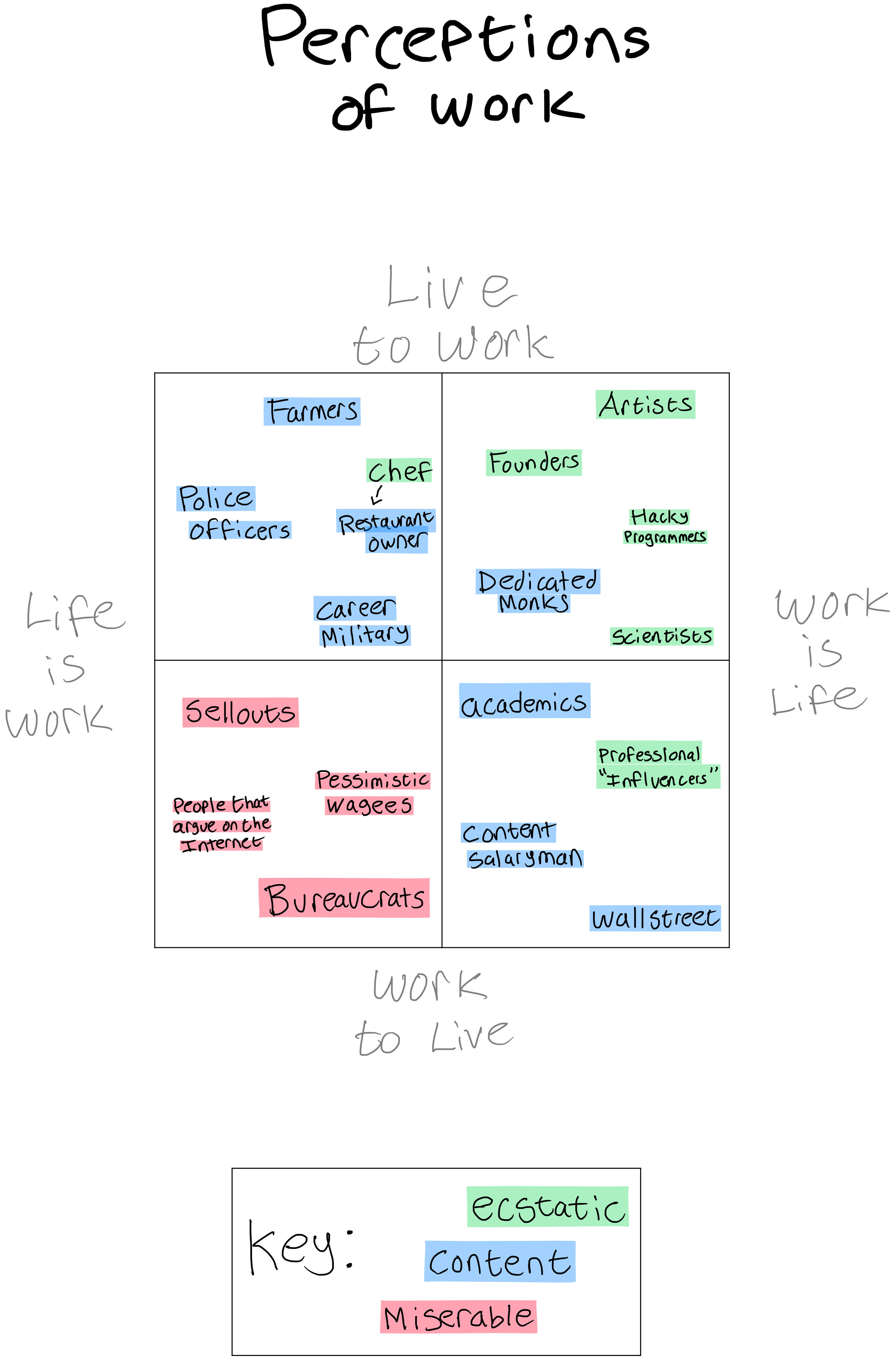The notion that life is suffering, unfortunately seems to be prolific in the minds of many folks these days. In part, this notion is rooted in the idea that one’s life is going to be spent clocking in and out, at 9 and 5 with a little lunch break in between, 5 days a week for the foreseeable future. There might be a vacation every now and then – but it is generally accepted there is little to look forward to outside of the monotony of the day-to-day found in work. Although it might be the case that humans are rather suited to the valleys of life and that repetition with a point is the path to improvement, it still seems as though we end up losing ourselves in an abyss of mediocrity – trapped in a life spent ceaselessly pondering the question; “Is this it?”
That notion is kind of whack and the thought of spending one’s life marinating in quiet, dissatisfied desperation is terrifying. One method of coping with this looming abyss is an escape into the Metaverse! Or perhaps more accurately, into pastimes that occupy our attention without much in return – costly pastimes. Paying for stimulation in a monotonous life with your attention at first seems like an attractive proposition, but like sugary foods or sleeping late, the attractiveness evaporates with a bit time – and why should stimulation for stimulation’s sake be what we want to pursue in life and spend our time on?
I reckon that stimulation alone in life is not what we ought to pursue, instead what we should orient ourselves to aim for is that which seems like an inescapable abyss of despair – work.
Work, and our relationship to it, comprises a large chunk of our lives. Believing that work is some terrible and necessary suffering is how an abyss of despair is permitted to fester. In some cases maybe rightly so (if what you’re doing is both unnecessary and tortuous), but in all lives it is worth examining the relationship we have with work and endeavoring to improve that relationship. Doing so, for me and I reckon also for you, will lead to; a healthy productivity, a truthful inner dialogue, taking on meaningful challenges and ultimately a relationship between your Life and Work that is satisfying and exciting.
To provide some common ground for us to think about Life, Work & Living – here is a little diagram of some statements that I feel encompass large camps of beliefs about work;

This diagram is inspired by the ye old political compass and revolves around a few simple statements that describe the relationship you have with Work, Living and Life. I took the liberty of bootstrapping some examples, populating the quadrants with what I think are archetypes of jobs and people that we can envision, empathize with and understand. The archetypes that comprise these quadrants are also colored in accordance to the perceived opinion of the folks that make up the tropes. Although stereotypes and overgeneralizing is a departure from reality (sometimes a useful compression of reality and other times not) I think these examples provide nice road-signs for us to understand the opinions present in the mental space of Life, Work and Living.
This diagram presents a method for classifying opinions and as such anyone in any field determines where they belong – for example, a person on Wallstreet might find themselves in the bottom left hand corner at times and a Scientist that feels extremely burnt out might drift towards the upper left hand quadrant.
Interestingly (as I didn’t intentionally plan this), a wide swath exists between our miserable and ecstatic examples, separated by those who are rather content.
To figure out where you and your current opinions go, determine which two statements you agree with most and your corresponding quadrant is the one with those two statements as its borders. (i.e; being of the opinions; “I live to work” and that “life is work” would nest you in the top left hand side of the diagram – alongside archetypal Farmers, Policemen and Restaurant Owners)
Axes Explanations
Before we dive into examples of the archetypal folks, let us elaborate what we mean by the statements on our axes:
- Live to Work: Is the opinion that your Life is in service to some kind of Work, something perhaps bigger than yourself or something that you feel the need to contribute to – sort of embodied by ants and their objective of protecting the colony. Living to Work might mean that your life spent in service to something.
- Work to Live: Here we think of Working as a means to an end (i.e; since I Work, I can Live a certain way) or Work is a sort of sacrifice I make in order to then go and Live my life. This view of Work is one of sacrifice and transactions – Work is endured so that we might Live in someway.
- Life is Work: This mode of thinking asserts that Life is comprised only of Work, a view of the future that is rather pessimistic, nihilistic or realistic – This view of work is somewhat indifferent to the type of work done, work is work regardless of what you do while you work and generally is unpleasant.
- Work is Life: In this mode individuals believe that their Life is the Work that they take on. That they exist in order to do that work and would somewhat happily spend their Life on the tasks and challenges that comprise the chosen work. This view is characterized by an opinionated take on Work – that is for these folks, a specific type of Work is how they would like to spend their lives.
Generalizations of Tropes
Here are how some of the archetypal roles find themselves in their respective quadrants:
- Artists- The Artist is a person that would forgo eating, sleeping and social interaction provided they had inspiration and the means to execute on that inspiration. Because of the rather insatiable desire to produce art in a way that expresses something perceived as profound or worthwhile these folks believe that their Work is their Life. Since they are willing to forgo what is generally assumed as “living” in order to develop their craft, these folks would also assert that they Live to Work.
- Chefs vs. Restaurant Owners- this one was a bit tricky, since we can draw a distinction between passionate chefs (who are very similar to, if not exactly like, artists) and discerning restaurant owners. The distinction being Chefs, who are passionate about creating and sharing, do what they do for a specific reason of wanting to do it. Restaurant Owners, although hopefully somewhat interested in what they are serving, are less interested in the specifics of the product as they are the whole picture of the business. This subtlety is why we have placed the Chefs closer towards “Work is Life” than our Restaurant Owners. These two groups are both in the “Life is Work” camp, but due to the nature of what they do they have slightly different placements in the quadrants and opinions of work.
- Wallstreet and the Content Salaryman- The bottom right quadrant is one where people view Work as being Life but also Work to Live – this is an interesting one that I think is embodied by folks who do not necessarily care immensely about the specifics of the work they do but allow it to occupy a large portion of their life and enjoy it. Work for them however is not something they would do if they were not payed, making them distinctly different from the top half of the diagram – a person in Finance or a Salaryman at some company would gladly not come in to work over the weekend if it was optional. Whereas a good Law Enforcement officer would want to assist in serving justice whether or not they were in uniform & the mind of a scientist doesn’t turn away from science at the end of the workday.
A Different Take On Work
Work, as we have established, is generally thought of as this nasty, antithesis of fun – the homework to the lively 7 year old’s video games. This view is an antagonistic one, for some situations/jobs it might be a valid perspective but in the general sense Work is not something we should fear or despise. Work is just the exertion of effort in service of some objective, a focusing of our attention and spending of our time. In this General view of “Work” there is more room to classify the things we do in Life as Work – not the boring things that suck our soul away but the things we do that require attention, effort and time. In this frame of view, most of “play” is Work, certainly all of our hobbies and activities outside of the mindless ones also are Work. This at first might seem like a non-useful classification, but re-framing what we think of as Work and then looking to pursue the most attractive version of it is what will result in the best possible relationship to work in our lives. To escape the local optima of thinking of work as that scam known to many as “homework” I see two clear options:
- Change the Position- if our work is actually (and honestly) the antithesis of fun and everything we find lovely & important in life – then your position has got to change. Finding a new career/role/job/thing to do is how we can move.
- Change the Perspective- if our issue with work is the way we view it, we need to update our beliefs and find the things that make our work meaningful. If we examine it with a honest and optimistic perspective, there is no shortage of brilliant things to be ecstatic about.
Work can be a pleasurable and amazing part of our days. The most fulfilling aspects of life are all “work-intensive”, such as;
- Having children
- Working out or Exercising
- Programming
- Relationships
- Mathematics
- Cooking
- Developing Skills
- Reading
Work is not just what we do between 9am and 5pm each day. Taking this narrow view of work leaves little time to seriously pursue things that are work but are not how we earn a living. Work should instead be thought of as all our paying attention, expunging effort and dedicating of time. In this viewpoint, work is the sum total of our conscious endeavors – the things we chose to spend our times on being our “Life’s Work”. If we understand the finiteness of the effort, attention and time we have – should we not aim to make the most of it? Shouldn’t life be spent in pursuit of things we find meaningful, interesting and challenging? Aiming to realize these types of objectives is best accomplished by Living to Work and being amongst the top half of the diagram where we care about the work we do and view it as a fundamental and major part of our lives.
Obviously work is still challenging and hard and painful and tough and it is so much easier to pull up social media or Netflix and enter vegetable mode. The reason to choose work, or endeavor to do so is because work, consciously directed towards what you care about, will return the most in the grand scheme of things. It is the most attractive investment you have available for spending your life. The things that are hard and require a bit of effort are those that bring us the most joy and fulfillment. Fun is to be found at the edge of what you are comfortable with and capable of doing – where additional Work is most fruitful.
What Else Would You Do?
Work, directed towards what you care about, might be the most important thing we have the opportunity to do in life. If we did not have things that we wanted to work on – what is there to do? Not having challenges to overcome and goals to achieve is analogous to being deceased. Without things to work towards we have no reason to get out of bed and there is no difference between today and 10 years from now. Without work there is not much in passively existing. Life becomes even more repetitive and dull if we neglect Work than if we actively take on Work that is meaningful to us.
Work here is also not narrowly defined – I do not mean to assert that you should be gung-ho to stamp 1,000,000 arbitrary documents by hand. Work is and should be thought of broadly, as our “Life’s Work”.
We are at our very best, and we are happiest, when we are fully engaged in work we enjoy on the journey toward the goal we’ve established for ourselves. It gives meaning to our time off and comfort to our sleep. It makes everything else in life so wonderful, so worthwhile.
— Earl Nightingale
An Ideal
Ultimately, I think it is worth working towards being in the upper right hand side of the diagram. This is a place of doing work we find meaningful and being eager to learn. Challenge here is not something that is unnecessarily avoided, it is something we can accept with a grounded attitude and even enjoy with the knowledge that we will become better at doing what we care about as a result of our trials and tribulations.
Being in that sub-space of possible conscious experiences where we are engrossed in work we find interesting; that “flow” state or focus or whatever you would like to dub it, this is the truest way of living. When the task at hand, the Work we are doing, envelopes us the way a child loses track of time in play – that state is among, if not the, best things we have the ability to experience. As a result, we should become a friend to our work and not despise it for features that it does not have.
Best of luck.

